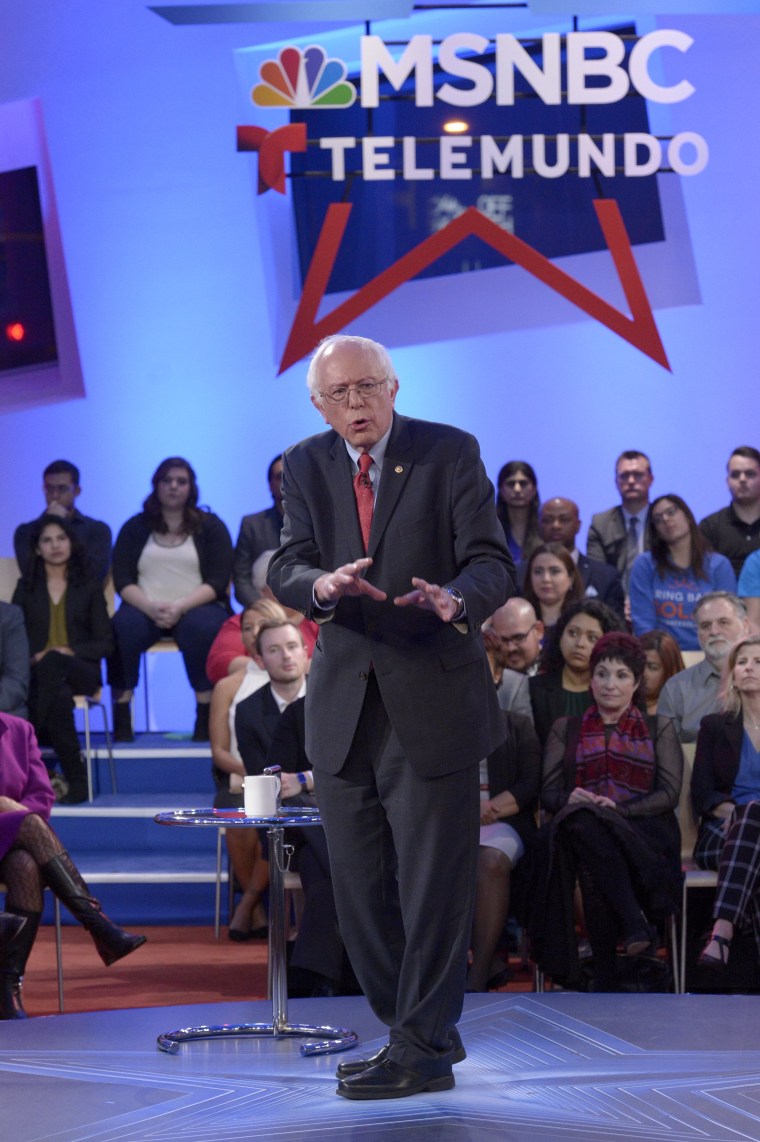FLINT, Michigan — Bernie Sanders, the Vermont senator who has become best known in part for his enormous mega-rallies all over the country, perhaps said it best this afternoon: “This is not a rally.”
And from that moment, the tone at Flint’s Woodside Church shifted from an enthusiastic bunch of Sanders supporters listening to his normal pre-event music to an impassioned, and often frustrated, dialogue between members from and around the Flint community and the presidential hopeful.
“This is an opportunity for all of us together…to talk about not only one of the more serious public health crisis in the modern history of this country,” said Sanders to the community forum of a few hundred sitting in pews, “but [ask]…how could it happen?"
Sanders essentially moderated a discussion with the audience and a panel of experts on lead poisoning and the Flint water crisis, asking people to raise their hands when responding to various questions about the state of affairs in Michigan.
“Why are you paying for the privilege of having poisoned water?” Sanders asked to shouted-out responses back.
The candidate listened more than he spoke for over an hour and said explicitly that the water crisis in Flint is an emergency that warrants a federal response.
"It seems to me that if the city does not have the resources, if the state doesn’t have the willingness then in fact, the federal government has to acknowledge this is an emergency situation and act accordingly,” remarked Sanders.
"If we are looking at children being poisoned, and perhaps suffering irreversible brain damage, if that is not an emergency, I just don’t know what an emergency is,” he asserted.
Two topics that were prevalent throughout the community forum were issues of accountability and infrastructure building.
“We’re sick and tired of hearing people say ‘Well we didn’t listen and well gee it wasn’t my fault, it was their fault.’” said one woman with a shaking voice sporting a Sanders sticker. "It’s about time, somebody was held accountable for this!"
One man asked simply why Michigan Governor Snyder wasn’t in jail.
“I have asked for [Snyder’s] resignation,” responded Sanders, "I think the dereliction of duty toward this community has been so extraordinary that I think in good conscious he should resign.”
But the consensus point shouted throughout the forum was straightforward: replace the pipes.
The Flint water crisis began when a government official made the cost-cutting decision two years ago to start using the Flint River as the city’s main water supply. The water corroded the predominantly lead-based pipes in the city, causing an unhealthy amount of lead to leak into water all over Flint. This increase of lead in the water, which government officials in Michigan were alerted of but did not act initially to address it, has lead to lead poisoning in the Flint community.
Sanders said that his $1 trillion dollar proposed infrastructure building plan would address exactly those such issues not just in Flint but around the country.
The senator has consistently referred to Flint as the “canary in the coal mine” on the trail since initially meeting privately with a handful of people affected directly by the lead crisis.
Tonight, he reiterated that statement, saying that Flint can be a “leader” in preventing other cities from suffering in this way again.
"Flint can be a leader, and that’s what you’re doing,” Sanders said toward the end of the forum, “In changing national priorities and saying that every city and every town in this country is entitled to strong an infrastructure, good healthcare, good educational opportunities for their kids, a good environment. If we get our priorities right, that what we’ve got to do."

